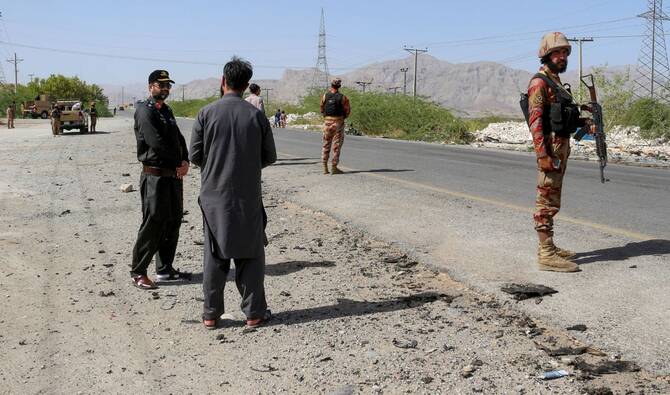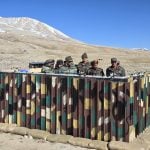In a dramatic escalation of regional tensions, Pakistan is reportedly preparing to launch targeted airstrikes against Baloch separatist militants operating in neighboring countries within the next 40 hours. The move comes in the aftermath of a suicide bombing in Khuzdar, Balochistan, on May 21, which killed five civilians—including three schoolchildren—sparking national outrage.
Also Read: Major Suicide Bombing Hits Army School Bus in Balochistan
The Pakistan Armed Forces are believed to be planning precision strikes on suspected militant camps in either Afghanistan or Iran, countries that share porous borders with Pakistan’s troubled Balochistan province. The bombing, which targeted a school bus en route to an army public school, has been blamed by Pakistani authorities on Baloch insurgents, with Islamabad also alleging Indian involvement—a claim New Delhi has firmly rejected.
Security sources indicate the planned operation is aimed at dismantling the operational bases of groups such as the Baloch Liberation Army (BLA), which has intensified its insurgent campaign in 2025. The BLA has claimed responsibility for a number of recent attacks, including a dramatic train hijacking in March and multiple ambushes that have claimed the lives of over 200 Pakistani security personnel this year alone.
The Khuzdar attack is the latest flashpoint in a conflict that has simmered since Pakistan’s independence in 1947. Baloch nationalists have long decried what they describe as exploitation of the region’s rich natural resources and systemic political marginalization. The Sui gas fields, in particular, have been a focal point of these grievances.
Pakistan’s aggressive posture marks a stark shift, raising fears of a wider regional fallout. Iran, which has occasionally collaborated with Pakistan against Baloch militants, is unlikely to tolerate unilateral airstrikes on its territory, especially given its own restive Baloch minority. Afghanistan, still grappling with instability under Taliban rule, is similarly expected to oppose any breach of sovereignty.
Historically, cross-border cooperation has been fraught. During the 1970s, Iran supported Pakistani efforts to crush Baloch resistance. However, more recent incidents—such as the 2009 killing of Baloch nationalist leaders allegedly by Pakistani forces—have drawn international condemnation and further radicalized Baloch sentiment.
Human rights advocates and exiled Baloch leaders have issued urgent appeals for restraint. Dr. Wahid Baloch, President of the Baloch Council of North America, called for a peaceful, political resolution to the crisis. “Bombing Baloch communities will not end this conflict—it will only deepen the wounds and drive more youth into militancy,” he warned.
The looming airstrikes have prompted concern among global powers. The United States and the European Union have both urged Pakistan to pursue diplomatic avenues and avoid destabilizing actions that could provoke regional confrontations.
As the 40-hour countdown ticks, the world watches anxiously. Whether this latest military gambit will suppress separatist violence or ignite a broader conflict remains uncertain—but it undoubtedly marks a perilous turn in South Asia’s longest-running insurgency.













